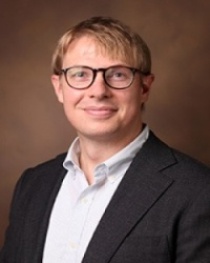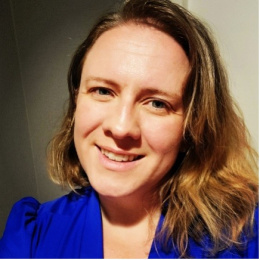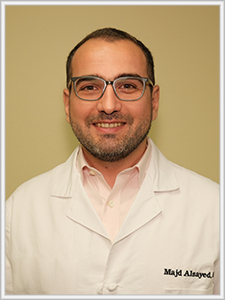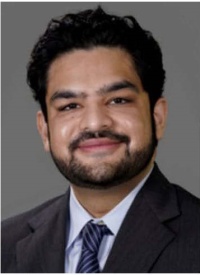The Addiction Psychiatry Fellowship at Vanderbilt University Medical Center (VUMC) is a one-year ACGME-accredited training program designed to graduate exceptional Addiction Psychiatrists with the clinical, teaching, scholarly, and leadership skills necessary for successful transition to faculty appointment. We have 2 fellowship positions available, including a grant-funded Research Fellowship position.
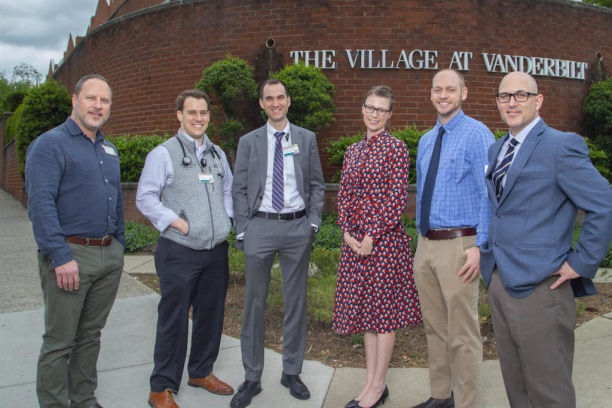
The American healthcare system is collectively facing a public health crisis driven by substance use disorders (SUD) and their comorbidities. The treatment of individuals with SUD involves layers of complexity beyond prescribing effective pharmacotherapy and providing targeted behavioral interventions. Evidence-based treatments exist within a context that itself has meaningful effects on individual and population outcomes. Such factors include significant stigma against individuals with SUD, a discontinuous system of SUD care that varies by geography and sociodemography, an accumulating burden regarding the barriers to accessing care, and historical tension between heterogeneous therapeutic philosophies. These may significantly impact an individual's ability to access and benefit from effective therapies. Contextualizing SUD treatment within these frames allows effective individual treatment planning, as well as meaningful advocacy for population-level interventions to improve outcomes and heal communities.
Consistent with our training program's mission, our fellows will deliver the highest quality SUD care across our health system and community partners, meeting the needs of a diverse population with significant barriers to accessing care. Fellows will contribute to SUD-focused education for medical trainees and clinicians in our community, and they will improve and personalize evidence-based SUD care for individuals and communities in the mid-South through mentored scholarship and research.
CLINICAL TRAINING
Fellows' clinical training sites span the SUD levels-of-care spectrum to develop well-rounded clinicians with experience across diverse patient populations and degrees of acuity. Core clinical experiences occur within Vanderbilt's Integrated Services for the Treatment of Addiction (VISTA) and community partners with Vanderbilt faculty support:
- Medically supervised withdrawal and inpatient psychiatric stabilization on the specialized Co-occurring Disorders Unit at Vanderbilt Psychiatric Hospital
- Addiction consultation to general medical and surgical inpatient services at VUMC
- High acuity outpatient stabilization in the low-barrier, multi-specialty VISTA Bridge Clinic
- Evidence-based group therapy for SUD in the VISTA Intensive Outpatient Program
- Maintenance SUD care in the outpatient interdisciplinary VISTA Recovery Clinic
- Outpatient SUD treatment for pregnant and postpartum individuals at the VUMC Firefly program
- Consultative SUD care within the VUMC specialty HIV clinic
- Targeted clinical experiences in inpatient and outpatient chronic pain management
- Quality improvement work focused on a community-based Residential Treatment Center.
Training flexibly incorporates individualized experiences designed to grow fellows' specific and specialized interests within Addiction Psychiatry. During the elective-based third quarter of the academic year fellows may select from training opportunities in neuromodulation interventions for SUD (e.g. TMS), with the Tobacco Treatment Service at the Vanderbilt-Ingram Cancer Center, supervised individual psychotherapy cases using CBT and the Acceptance and Commitment Therapy (ACT) modalities, early intervention and SUD consultation at the VPH Adolescent Partial Hospital Program, clinical toxicology, and structured assessment of SUDs in professional populations.
The training environment includes multispecialty Addiction Medicine fellows, VUSM medical students, General Psychiatry residents, and fellows across psychiatric subspecialties, including Child-Adolescent, Geriatric, and Consultation-Liaison Psychiatry. Fellows deliver specialty SUD care within an interdisciplinary and multi-specialty team, including colleagues in primary care, infectious disease, pain medicine, obstetrics/gynecology, emergency medicine, advanced practice nursing, psychology, case management, social work, and recovery coaching.
VUMC is situated on the bucolic 330-acre campus of Vanderbilt University and includes Vanderbilt University Adult Hospital, a tertiary care Level 1 Trauma Center with 1,000+ inpatient medical and surgical beds. Our Addiction Consult Service fields >1,100 SUD-specific consultations each year across VUAH, with demonstrated reduction in post-consult acute care utilization and marked increases in initiation of agonist medication for opioid use disorder (MOUD).
Vanderbilt Psychiatric Hospital (VPH) is an inpatient psychiatric facility on VUMC’s campus with 100+ beds on subspecialized units. The VISTA Bridge and Recovery Clinics are adjacent to VUMC’s campus in the Hillsboro Village neighborhood, with clinical spaces tailored to SUD population needs.
Populations served at these sites draw from a 65,000 square-mile catchment area stretching across Middle Tennessee, from southern Kentucky to northern Alabama. Fellows care for individuals living in urban and rural settings, medically underserved areas, and racially- and culturally-diverse communities.
A video tour of the VUMC campus is available here https://gmeoffice.app.vumc.org/tourvideos
FELLOWSHIP FACULTY
Fellows engage in intensive clinical supervision, mentorship, and scholarly activity with our faculty of board-certified Addiction Psychiatrists and VISTA Faculty Affiliates across multiple specialties and departments at VUMC.
CURRICULUM
Fellows have protected scholarly time with faculty support for board preparation, teaching, research, and academic writing. This curriculum is integrated with our allied Addiction Medicine fellowship, creating a shared learning space for fellows across these programs.
Academic Time: 10% FTE
Didactic seminars:
Weekly lectures with a board-preparation focus are augmented by additional specialty topics from active clinical services and research within the Division of Addiction Psychiatry and Vanderbilt Center for Addiction Research. The curriculum emphasizes identification, assessment, diagnosis, and evidence-based treatment of the spectrum of substance-related and addictive disorders, alongside their psychiatric and medical comorbidities.
Faculty Supervision:
Clinical site: daily supervision with faculty for outpatient cases; daily rounding for inpatient/consult services, with weekly case conferences.
Psychotherapy: weekly for individual and group work, monthly for Motivational Interviewing recorded session review and feedback.
Program Director: bi-weekly individual mentorship and career development.
Scholarly Work:
QI curriculum: VUMC-sponsored GME-wide QI curriculum with the ability to scale a project to meet fellows’ interests; additional QI program in partnership with a community Residential Treatment Center focused on improving evidence-based care.
Scholarly project: 1 publication-quality project per year; potential projects include a literature review, book chapter, or data-based project, leveraging VUMC resources for data analysis and faculty mentorship.
Writing workshop: fellows present scholarly projects to faculty round-table for feedback, aimed toward submission to a scholarly journal or national meeting.
Observed lectures: fellows prepare and deliver lectures for a Tele-ECHO clinic and for the clerkship or residency programs, with feedback from learners and faculty.
Journal article peer review: fellows engage in peer review process of a submitted manuscript for a specialty journal with a faculty mentor.
Journal club: fellows present major findings and criticisms of an SUD-focused paper, alternating between landmark and new emerging-evidence literature.
Orr Lecture in Addiction Psychiatry/Grand Rounds: fellows co-present at departmental Grand Rounds with a faculty mentor.
AAAP Annual Meeting: fellows attend with program support.
LIFE IN NASHVILLE

Our faculty and trainees cannot say enough about our verdant, lyrically and gastronomically creative hometown and its quintessential southern hospitality. Information about living in Nashville is collected for the Vanderbilt community here
Fellows’ stipend and benefits information is located here.
There is no call or weekend coverage. Moonlighting opportunities require program approval.
INFORMATION FOR APPLICANTS
Successful completion of an accredited General Psychiatry residency is required for matriculation to this PGY5 fellowship position. The fellowship is designed to meet and exceed the defined ACGME Program Requirements for Graduate Medical Education in Addiction Psychiatry. The program received initial accreditation in 2020. Psychiatrists completing the fellowship are eligible to sit for board examination in Addiction Psychiatry through the American Board of Psychiatry and Neurology.
Addiction Psychiatry Fellowship Programs will be using ERAS for application submission and the NRMP Match for candidate selection. The application process calendar is shared across participating programs:
- July 15, 2025: ERAS opens for application submission
- Late August – November 2025: virtual interviews with fellowship programs
- November 5, 2025: NRMP Match ranking opens
- November 19, 2025: NRMP Match rank order list certification deadline
- December 3, 2025: NRMP Match Day
The application process is here Information about the NRMP Match process is here.
Our NRMP program code is 1702401F0.
Applications materials submitted through ERAS should include a personal statement describing interests, achievements, and career goals within Addiction Psychiatry; standardized data from the applicant’s curriculum vitae; current headshot photograph; USMLE I, II, III scores (or COMLEX equivalents); and any applicable information for IMG credentialing (e.g. ECFMG Certificate, visa). Three (3) letters of recommendation are required; one letter must be from the applicant’s residency Program Director.
Consistent with 2024 AAMC guidance, we will be conducting all applicant interviews virtually for the July 2025 recruitment cycle. An opportunity for in-person visits may be available pending public health conditions, and this would occur after NRMP rank order list certification to ensure an applicant’s ability to travel is not included in the selection process.
WANT TO LEARN MORE?
Please contact us to discuss your interest in our program. We want to provide all necessary data as you make the exciting and difficult decisions around where you will train in Addiction Psychiatry. This is an important time of need and growth for the field, and we are thrilled you are considering joining us in your next steps.
Kristopher Kast, MD |
Amber Ward, MS |
